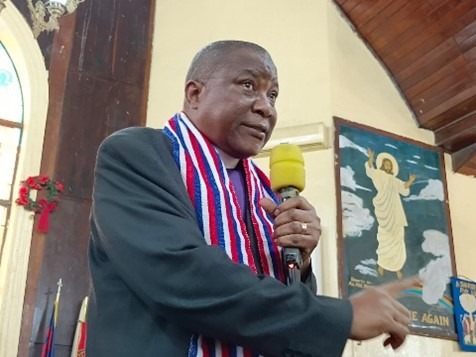The escalating violence in Nigeria has drawn strong condemnation from religious leaders, particularly within the United Methodist Church (UMC). Bishop Samuel Jerome Quire, Jr., President of the West Africa Central Conference (WACC) College of Bishops and Resident Bishop of the Liberia Annual Conference of The UMC, has voiced his deep concern over the recent surge in attacks, which have disproportionately targeted UMC members in the northern and central regions of the country. He characterized the violence as a senseless tragedy that disrupts the nation’s peace, stability, and progress, causing widespread suffering and fueling fear and insecurity among the population. Bishop Quire’s condemnation extends beyond mere rhetoric; he has pledged to visit Nigeria to address the root causes of this violence, which he attributes to actions instigated by members of the Global Methodist Church (GMC). His commitment to finding lasting solutions underscores the gravity of the situation and the urgent need for intervention.
The violence in Nigeria, with its devastating impact on communities and the UMC, highlights the fragility of peace and the urgent need for concerted action. Bishop Quire’s planned visit, despite prior communication with the Resident Bishop of Nigeria, underscores his personal commitment to understanding the situation on the ground and working toward a resolution. His expression of condolences to the families and friends of those killed or injured in the attacks reflects the human cost of this violence and the importance of empathy and solidarity during this challenging time. The attacks themselves, primarily concentrated in the northern and central regions, have not only caused immediate harm but have also created an atmosphere of fear and uncertainty, threatening the social fabric of the affected communities.
Bishop Quire’s call for unity and peace in the face of adversity resonates deeply within Nigeria, where frustration with the government’s response to the violence is growing. His message emphasizes the importance of collective action and the shared responsibility to rebuild and restore hope. He urges Nigerians to transcend their differences and work together towards a brighter future, one where peace prevails over violence and where communities can thrive without fear. This call for unity is not simply a plea for passive acceptance but a call to action, encouraging Nigerians to actively participate in the process of healing and reconciliation.
The violence in Nigeria has sparked widespread condemnation and calls for action, especially from within the religious community. Bishop Quire, echoing the sentiments of many, has called on the Nigerian government to take decisive action to restore order, protect vulnerable populations, and hold perpetrators accountable. The escalating violence, coupled with the perception of inadequate government response, has fueled public frustration and a sense of urgency for effective intervention. The demand for accountability underscores the importance of justice and the need to address the underlying causes of the conflict.
Religious leaders, particularly within the UMC, have been vocal in their condemnation of the violence and their calls for peace and reconciliation. Bishop Quire’s statement, representing the WACC, has resonated strongly with many Nigerians, reflecting a shared desire for an end to the violence and a return to stability. This collective voice underscores the importance of interfaith dialogue and cooperation in addressing the complex challenges facing the nation. The call for peace and reconciliation is not merely a religious aspiration but a practical necessity for building a more just and harmonious society.
The situation in Nigeria presents a complex challenge, demanding a multi-faceted approach that addresses both the immediate security concerns and the underlying drivers of conflict. The violence, particularly the targeted attacks on UMC members, underscores the vulnerability of religious minorities and the need for enhanced protection. The call for sustained efforts to address the root causes of the violence recognizes that lasting peace requires more than just a cessation of hostilities; it requires addressing the underlying social, economic, and political factors that contribute to conflict. This holistic approach is crucial for building a more resilient and inclusive society where all citizens can live in peace and security.


